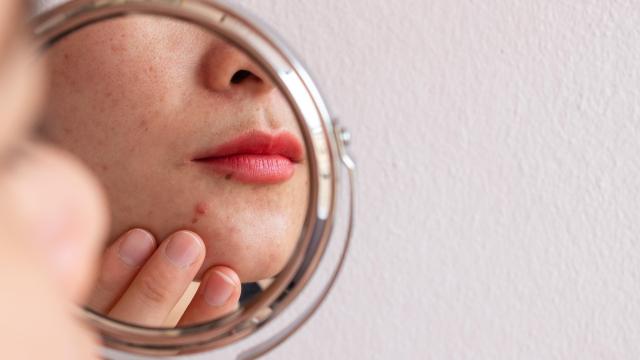In a survey of more than 1,000 people, researchers found that people were more likely to be treated as pariahs in a variety of ways when their faces were digitally altered to have acne. The stigma associated with acne may be greater for people with severe symptoms and darker skin tones as well, the study found.
Past research has shown that people with acne tend to have higher rates of depression and anxiety. But the authors of this new study, published Wednesday in JAMA Dermatology, say that less work has been done to gauge how people with acne are perceived by others.
The team, led by researchers from Brigham and Women’s Hospital in Massachusetts, collected stock pictures of four people. They digitally altered each picture to either have mild or severe acne, leaving them with 12 pictures total. Then they conducted an online survey of about 1,300 people, randomly showing the respondents one of these pictures and asking them questions about the person’s social desirability.
Compared to the no-acne condition, respondents were less likely to report wanting to be friends with, to be in close proximity to, and to put up photographs on social media with people when their pictures showed them having acne. They were also more likely to endorse common acne-related myths and stereotypes when they saw people with severe acne, rating them to be more unhygienic, untrustworthy, and unintelligent on average.
Pretty much anyone can get acne, though it’s most likely to happen during our teen years. Family history and certain medications are other known risk factors, while things like stress or diet don’t necessarily cause it but might make episodes worse.
The researchers additionally found a possible link between having darker skin and worse acne-related discrimination. Respondents were more likely to want social distancing from people with darker skin when they had acne than other people with lighter skin, for instance, and more likely to endorse acne-related stereotypes. But the team says more research will be needed to validate this finding.
In any case, they argue that people should recognize the stigma that folks with acne encounter, and experts should treat it as the serious condition that it is.
“Our findings show that stigmatizing attitudes about acne can impair quality of life, potentially by affecting personal relationships and employment opportunities,” said study author John Barbieri in a statement from Brigham and Women’s Hospital. “Acne is often wrongly perceived as merely a cosmetic issue. It’s important that people with this medical problem get access to treatment, just like any other condition.”
